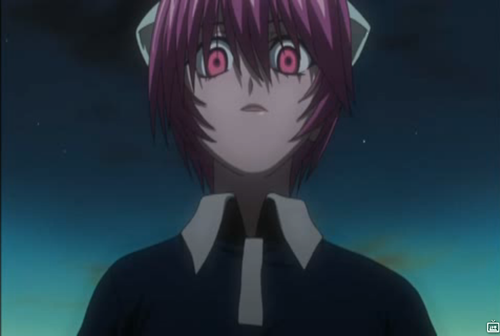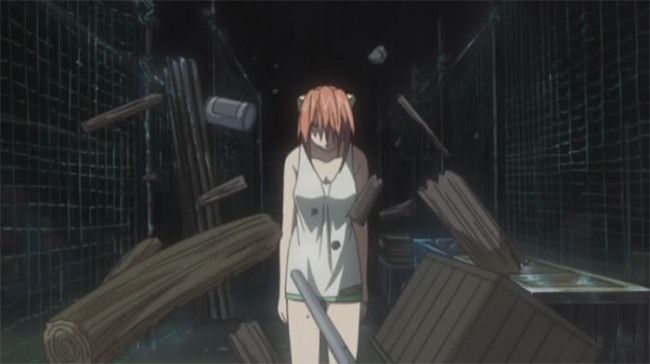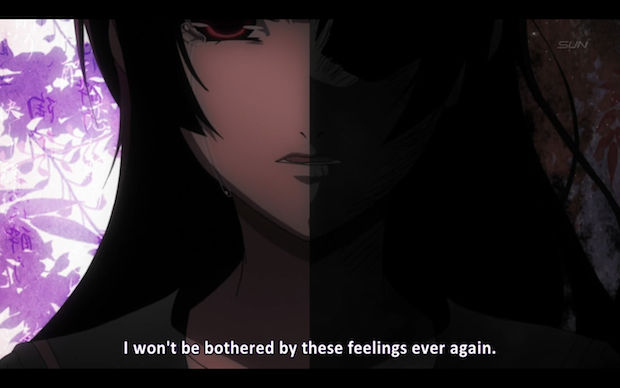Having read several articles based on this series of chain posts, the thought that someone would select me as part of it never crossed my mind. But, Marlin-sama of the blog Ashita no Anime has tagged me, so I will do my best to answer his questions and find people to tag. Here are the rules:
Introduction
- Each person is supposed to follow the rule of fives. You are allowed to ask 5 questions, after which you can tag up to 5 bloggers by hyper-linking to their blog; 5 questions because it’s not too many to flood another blogger and occupy too much of his/her time, but yet a large enough number to ask your most important questions, and 5 bloggers to avoid spamming. Hence, prioritize your questions, and who you wish to ask!
- Those tagged are obliged to answer the questions in a blog post, and after which, they are entitled to create their own 5 questions and tag 5 other bloggers, so on and so fourth. You should answer your own 5 questions as well. You are allowed to tag the person that tagged you in the first place. Also, copy and paste this section on your blog so others can understand how the game goes.
- In the case where a blogger strongly refuses to answer a question, he/she must instead post a nice anime image, wallpaper or cosplay picture, et cetera in response to that question.
- To make things interesting, a blogger can include wildcards in his/her 5 questions by placing an asterisk, (*), after which those tagged are obliged to reveal something interesting about themselves that others did not previously know. There is no limit to the number of asterisks one can place (which means there can be up to 5 wildcard questions).
- Anyone can feel free to start the game; you don’t necessarily need someone to tag you. Just create your 5 questions and tag your 5 people of choice. However, the catch is that you must answer your own 5 questions as well.
- To potentially prevent an endless game, this round of games will end on the 8th September 2012, 12pm JST (GMT +9). After which, no more bloggers can tag others to answer their questions.
Here follows the questions and my answers to them:
Q1. What is your favorite anime of all time? Then, objectively speaking, what do you think is the best anime of all time? Explain why you chose these anime (especially if you chose the same anime for both questions).
For me, Rurouni Kenshin stands as my favorite anime. This is the show which propelled me into anime, so I might be a little biased; but I’ve yet to find an anime which has better characterization or discusses its themes better. This series does have drawbacks: overlong speeches, too many flashbacks, the first and last seasons are rather episodic, and the final season was badly done and not based on the manga. (I consider that season as unworthy of being accounted with the first two seasons.) But the first two of these drawbacks help the viewer to benefit from the technique of parallelism, which Nobuhiro Watsuki employs to great effect in delineating his characters and highlighting the themes. I especially enjoy how similar the villains are to the heroes; but the villains deviate slightly from the right path, often having high ideals which are slightly twisted. This makes the difference between the heroes less black and white and the characters more interesting to examine.

The fights of Rurouni Kenshin and the animation are also very beautifully done. Kenshin vs. Saito is considered by many otaku to have been one of the greatest fights ever animated. The tension between the two combatants is palpable, and the whole fight comes across as very realistic. Qualities which bring the audience to the ends of their seats and makes them feel every blow. The overall animation for the show is top notch, and the audience is treated to the bonus of seeing characters which look more Japanese than one finds in the usual anime. May I add that this show weaves in historical detail better than any other anime? So much so that many people (your humble blogger included) have passed Japanese history tests from what they learned on this show.
You’re going to think me very provincial; but, for my objective best, I’m choosing Samurai X: Trust and Betrayal. Samurai X has more focus than the TV show, thus eliminating many of the drawbacks found in the TV show. Also, the atmosphere is much darker and more tragic: Rurouni Kenshin makes one wish they were born a samurai and could participate in duels; Samurai X makes one frightened even to pick up a katana. When people get cut down, the viewer feels their agony. The swords even seem to emanate cruelty. This atmosphere is very fitting for the dark days of the Meiji Revolution. By the way, let me also say that AnimeNfo agrees with me in ranking this OVA as the best anime.

Q2. Same as question 1, but for your least favorite anime and what in your objective opinion is the worst anime of all time (for this question try to choose an anime for which you’ve actually watched a respectable number of episodes and try to avoid small titles that nobody has ever heard of).
My least favorite anime is Cat Soup. My dear readers might have even been able to guess my response. I remember reading a review that claimed anyone’s who’s not a religious nut would love it. Though that puts it a little harshly, the term aptly fits me. It contains a rather reprehensible depiction of God, I didn’t care for the animation, and it consists of a series of scenes rather than a story. Fortunately, most of the details have long since been forgotten.

My first choice for objective worst would have been Ghost Hound had it not been for the stipulation that the show be well known. That show entices the viewer by its weirdness, gives him enough interesting details to inspire hope that the show will become good, and makes one suffer through one dull episode after another before one is forced to throw in the towel.
If four episodes may be considered respectable, I choose Dragonaut: the Resonance for objective worst, which tries to lure the viewer into continuing to watch through having well-endowed women all over the place and a modicum of action. Nothing else to it.
Q3. What initially led you to anime and what keeps you interested in anime? Do you think it will continue to be a lifetime passion? Why or why not?*
As an avid lover of pre-modern pagan cultures, such as Rome, Athens, the Vikings, and Japan, it was only a matter of time until I discovered anime. My father used to be an avid practitioner of Karate, has a great interest in Eastern philosophies and religions, and was dubbed an honorary Asian in college. Naturally, some of his tastes, especially for martial arts and its philosophy, were impressed on me. In addition to martial arts, I loved watching samurai movies. These cultures all seemed to have a strong moral bent, which especially attracted me to them.

Then, I discovered that certain shows belonged to a genre called anime. I saw Rurouni Kenshin on Toonami, discovered the manga Inuyasha, and found myself hooked. As for whether it will remain a lifelong hobby, I must confess to having an aversion to clinging to anything–no matter how pleasant. Despite the fact that I do very much enjoy anime, several of my other hobbies have been pushed aside for anime, and I want to make more time for those. So, while I can see myself remaining an otaku for several more years, I hesitate to say that it will be a lifetime passion.
Q4. Do you think it’s possible to integrate or use ecchi content or themes to enhance a story rather than simply as fanservice that detracts from the overall work?
Easily, but it’s not advisable. For me, the best example of nudity put to good effect was in Elfen Lied, where it highlighted Lucy’s deep-set desire for innocence. In the Garden of Eden, the nudity of Adam and Eve symbolized innocence. Here, the fact that so many terrible things happen around nude people stresses that innocence is nowhere to be found in this world. But, many people cannot see through the characters’ bare bodies to perceive this theme. For them, nudity turns them away from the show.

Such a pleasant face.
Freezing is a perfect example of ecchi elements ruining a show. Frankly, this is a spectacular show. The only drawbacks to it lie in that the plot was rushed and not enough details about the setting were given to the audience. It has strong, likeable characters, stunning fights, outstanding animation, a touching relationship between the hero and the heroine, and several gut-wrenching situations. Despite all of this, several people absolutely despise this show. They become totally oblivious to this show’s good points in the face of all that fanservice. Amusingly, I remember one reviewer who claimed to have been enticed by the fanservice before becoming so wrapped up in the show’s action that he ceased to notice it. How much more popular would this show have been if only they had toned down or even eliminated the fanservice?
Q5. I think many would agree that some otherwise respectable anime have been let down by lackluster endings. What anime do you most want to change the ending—not because you disagreed with it, but for quality purposes. Then how would you change it and why? (I understand spoilers may be unavoidable when answering this question)
Well, the ending of Scrapped Princess seemed a little unnatural and ludicrous to me–the triangle of land and sea on which the remnant of humanity lived fitting back into the world and everything. I would have had it end with a final showdown between the aliens who had imprisoned humanity and our heroes. It seemed a little inconclusive in that we never meet the original foes of humanity. Also, Leopold would get the girl and ditch the Mr. Soopy suit: the ending had me feeling too sorry for him.

Amusingly, I discovered that AngryJellyfish has also tagged me into the game with a set of five questions. So, let me answer those five before going on to mine.
1. Which anime protagonists (if any) do you feel you’d be able to do a better job than if you were in their situation?
Well, there are plenty of wimpy heroes or harem protagonists I could do a better job than. (I tend to be decisive and stubborn about things, which would come in handy in many situations.) But among a slightly higher class of protagonists, I’ll select Kai Kudou of E’s Otherwise. Basically, he lacks any kind of good sense. Give me his power and place me in the same situations, I’d probably do better–except that I’d be a lot more boring to watch.

2. Which popular anime series do you not like, or find overrated?
Any of the Big Three. Even if they are entertaining, how can one justify creating a series of several hundred episodes without any closure in sight? Why would one give so much of their precious time to just one series? It appears absurd to me.

3. What manga or anime series would you like to see fansubbed/scanlated in your language, or licensed in your country?
Americans have it too good. It seems that everything is sooner or later available to us. So, I’ll have to go with the classic Ashita no Joe as a series which I’d like to see licensed in this country. It’s very highly regarded among the Japanese, seems to have really strong characters, and Hajime no Ippo, which I highly enjoy, was likely based on this–the main difference being that Ashita no Joe has an anti-hero, while Ippo’s your perfect hero. So, if Funimation or another company were to license boxed sets of this, I’d be one of the first to buy it.

4. What series would you recommend to someone who has never watched any anime?
That series would be Fullmetal Panic Fumoffu. I’ve successfully hooked several people on anime through this show. You see, most people expect cartoons to be centered around comedy, which is why Fumoffu, a show which nearly makes the viewer die laughing, offers a great introduction. From there, you can expand their perception of the stories a cartoon may convey.
5. Do you have any weird anime watching habits?
Well, I always have to be drinking something when watching anime. This beverage is usually tea. Sometimes, I see it as a good time to break out some hard liquor or port–even if the anime does not require it. If I have friends around, I’ll offer some kind of alcoholic drink. Though, this turned out to be a big mistake one night, when a friend of mine and I were watching the sequel to Geobreeders. I’m not sure whether it was the two bottles of wine or the fact that we were talking too much, but we did not remember a single thing about the OVA the next day! Which may mark the only time alcohol has caused me to forget things.
If I’m not drinking something, then I’m oiling go stones, which certainly counts as weird. However, it’s not as much fun to play go if the stones aren’t shiny!

Now for my questions and answers:
1. How else are you involved in Japanese culture?
In my case, I love martial arts philosophy and used to practice Judo and Aikido, the latter of which I’d like to return to someday. I study the Japanese language, read light novels both in Japanese and English, and would love to graduate to more sophisticated Japanese literature. I also enjoy Japanese teas and wish to study their tea culture more.

Morihei Ueshiba, the founder of Aikido
2. What anime turned you into a fan?

In case, you forgot.
3. Who are your two favorite Japanese VA’s (one male and one female) and two favorite English VA’s (also one male and one female)? For the English VA’s, you can substitute actors in another non-Japanese language.
I used to be more into this facet of fandom than now. But, here are my favorites:
Ken Narita, especially for his roles as Sesshoumaru of Inuyasha, Jeremiah Gottwald of Code Geass, and Durand of Le Chevalier D’Eon. I particularly love deep and powerful voices.

Megumi Toyoguchi, especially for Revy of Black Lagoon, Yao Sakurakouji of Miami Guns, Layla Ashley of Avengers, Honoka of The Third: The Girl with the Blue Eye, and Reni Vikuro of Innocent Venus.
Kirk Thornton for his roles as Hajime Saito of Rurouni Kenshin, Jin of Samurai Champloo, and Brandon Heat of Gungrave.

Laura Bailey for her roles as Michel Volban of Glass Fleet and Sylvia Ban of Solty Rei.
4. Out of the shows you’re currently watching, which is your favorite?
For me, the answer’s Hunter X Hunter. I love how much intellectual prowess the fights and the obstacles placed before our heroes require. This makes is different from the run-of-the-mill shonen.

5. What is your favorite era for anime and why?
My answer combines two time periods usually separated, but I feel that the earlier one still strongly influenced the latter: the late 90’s through the early 2000’s. Some of my favorite shows were produced during this period. Also, computers played less of a role in the animation of these days than now, and I particularly like the human touch one sees in these shows.
Of course, the anime of prior eras relied even less or not at all on computers, but the character designs were not as elegant.
Well, that’s enough writing for one post. I’m trying to think of people who haven’t been tagged yet. Here it is:
ChibiOtaku010
Naru of What is this “Culture” you speak of?
John Samuel of Pirates of the Burley Griffin
SnippetTee of Lemmas and Submodalities
Exiled2Oblivion
I hope that you enjoy this little game!








































